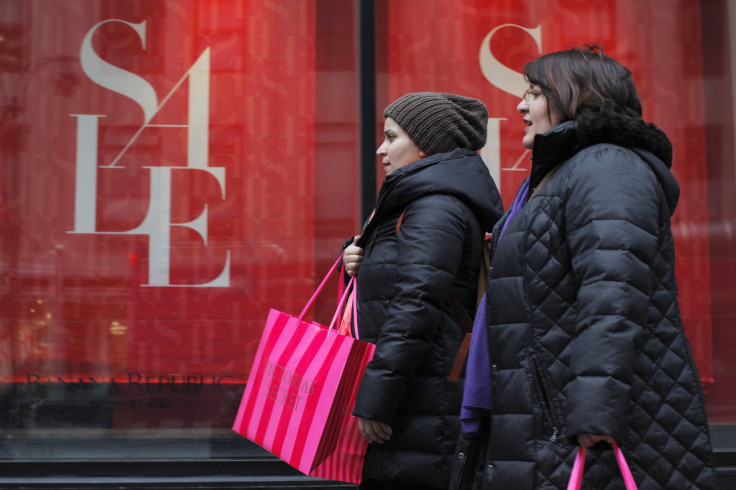Retail Sales 2015: Winter Blues Weighs On US Retailers In February Despite Low Gas Prices

U.S. consumers unexpectedly spent less at retailers last month despite a steep drop in gasoline prices across America, marking the first time since 2012 that sales have dropped for three consecutive months. Retail sales is a key economic indicator, since consumer spending accounts for nearly two-thirds of U.S. economic activity.
Retail sales dropped 0.6 percent in February after declining 0.8 percent in January, the Commerce Department said Thursday. Analysts had expected retail sales to rise 0.3 percent last month, according to analysts polled by Thomson Reuters. Sales also fell 0.3 percent in December.
The unexpected drop in sales disappointed some market professionals, as the precipitous drop in gasoline prices over the past few months was expected to boost consumer spending at retailers. “There is no denying that the lack of evidence of a pickup in consumption growth is disappointing given the boost to purchasing power from lower energy prices,” Paul Ashworth, chief economist at Capital Economists, said in a research note Thursday.
But even though economists have yet to see low gas prices facilitate higher spending at retailers, they do expect to see an acceleration soon, as it seems severe winter weather appears to have hit retail sales for the second year in a row, Ashworth said.
While falling crude oil prices serve as a headwind for the global economy in the long term, experts say they are a tailwind for the U.S. economy in the short term as gasoline prices continue to decline. Crude oil prices have lost nearly 60 percent from June to January, sending the average cost of gas in the U.S. to $2.44 per gallon, down $1.04 from a year ago, according to Gasbuddy.com.
© Copyright IBTimes 2024. All rights reserved.





















